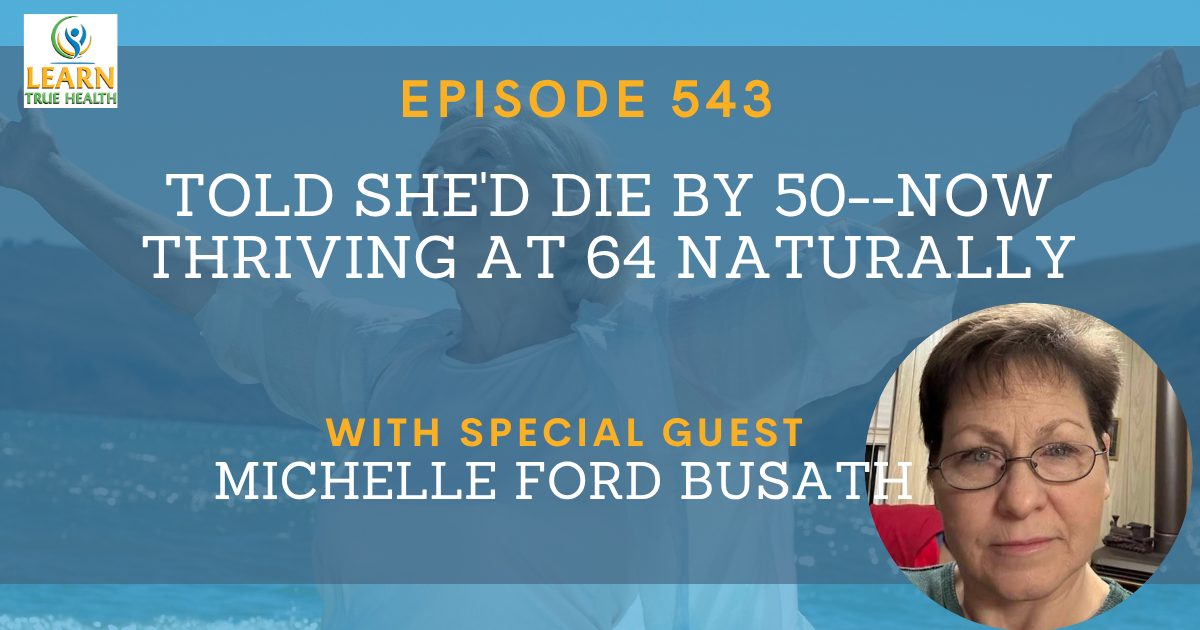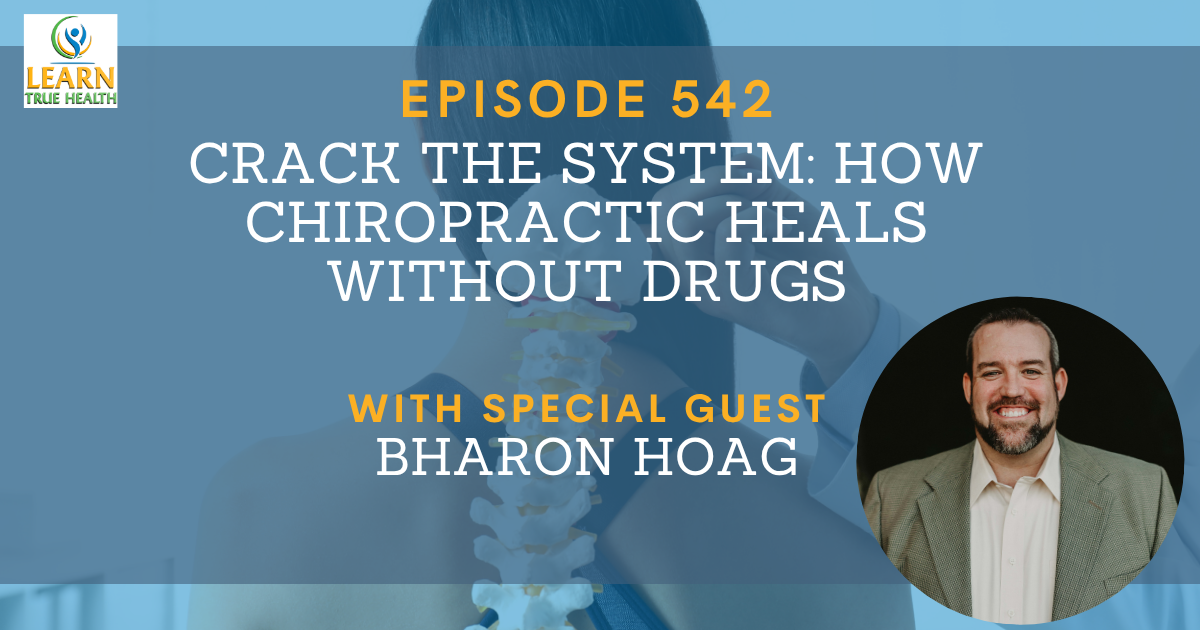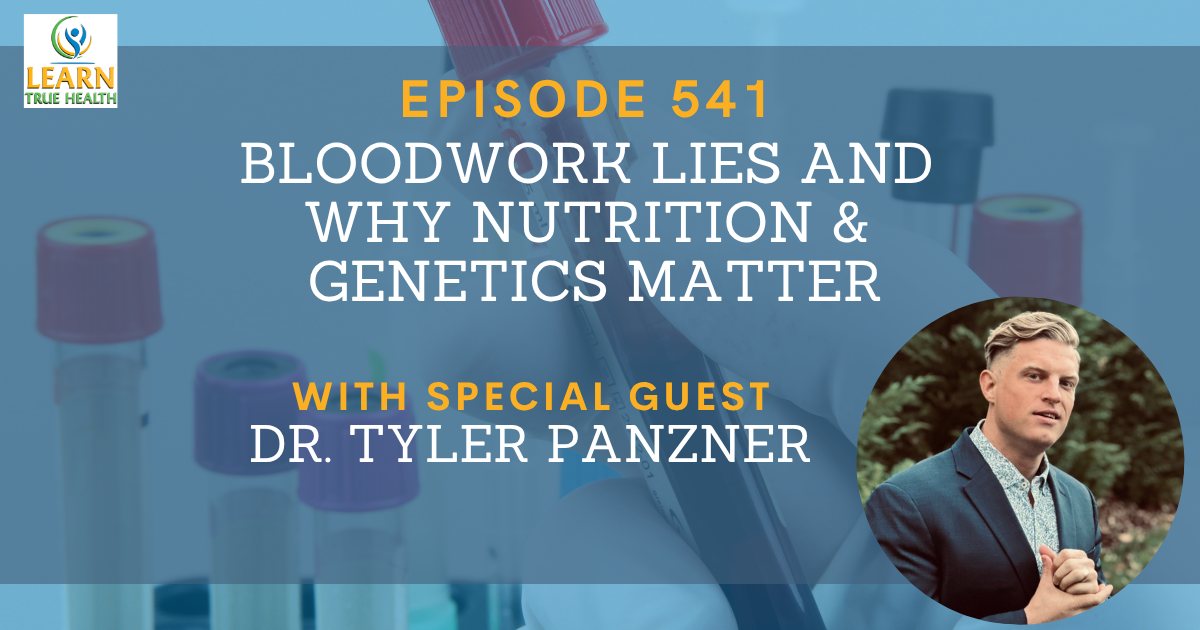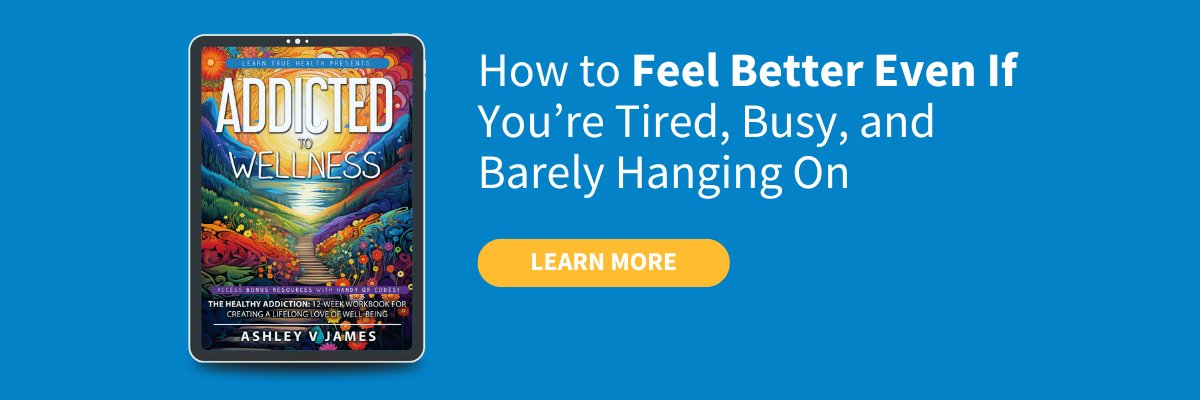274: Epigenetics

Understanding Epigenetics
Epigenetics and gene methylation are two essential components to our health. Symptoms can only warn us at a certain extent, but epigenetics and gene methylation enable us to understand why our body is working the way it is. To help us understand epigenetics and gene methylation and how it affects us, Dr. Kara Fitzgerald is on the show today to explain why.
Early Training
Dr. Kara Fitzgerald shares that she did some did training after medical school, after which she took on a post-doctorate position in Nutritional Biochemistry at a chemistry lab that was pretty advanced. Together with a team, Dr. Kara Fitzgerald analyzed things like organic acids and toxins.
“We were looking at evidence of how genes were functioning in our bodies by looking at various things that were products of gene activation,” said Dr. Kara Fitzgerald. “We eventually started analyzing the microbiome using PCR and DNA analysis. Incidentally, we were the first lab to offer it clinically. So in a way, we were early adaptors.”
Then, after some time, the whole idea of methylation became popular. Many people started inquiring about data. According to Dr. Kara Fitzgerald, it was exciting, but her background is working in the laboratory keeps her rooted in research.

What Is Methylation
Dr. Kara Fitzgerald explains that methylation is a massive multi-factorial process that happens in the body. But simply put, a methyl group is just carbon with three hydrogens.
“We can then take that methyl group and stick it on to compounds in the body and then pop it off as compounds,” said Dr. Kara Fitzgerald. “So, we're forever putting methyl groups on to things and taking it off of things.”
She adds, “So it's difficult to pin down what symptoms are associated with methylation. Because it is fundamental, and it is happening all over the place. To date, over two hundred enzymes are using that methyl group in humans.”
Discovering Epigenetic Methylation
Some years ago, Dr. Kara Fitzgerald came in contact with epigenetic methylation. DNA methylation is a fundamental epigenetic piece. The hypermethylation of a gene generally turns it off while the hypomethylation of a gene generally allows it to be expressed. Dr. Kara Fitzgerald says because of that, it can have a profound influence on health or the expression of disease.
Tumor suppressor genes can be hypermethylated and turned off. Hypomethylation will allow a gene to be expressed. It is also here where you can see the hypomethylation patterns in cancer and other chronic diseases.
“The gene that's going to promote the development of cancer could be hypomethylated and therefore turned on. As I dove into the literature, I thought that perhaps we were pushing methylation too far and influencing negatively epigenetic methylation,” said Dr. Kara Fitzgerald.
She adds, “We want to pay attention to what's coming down the scientific pipe. Think about it being applicable and likewise ask if we are doing something that we need to change. The world of epigenetic methylation is a huge a-ha moment for me, ultimately changing the way I think and practice medicine.”
Methylation Goals
Dr. Kara Fitzgerald reveals that people should aim for balanced methylation of the epigenome. We must also be able to allow the body to make the decision points on how our epigenome is methylated.
There are demethylating drugs that are used in cancer therapy, and they do widespread demethylation of the epigenome. But while they are helpful, Dr. Kara Fitzgerald says they are not specific.
But it looks like nutrients can be a little bit more specific around allowing balanced methylation expression in the epigenome. Dr. Kara Fitzgerald primarily uses diet to optimize methylation expression or epigenetic expression in the body.
“The research in epigenetics prompted me to pause and not just push methylation forward because we see a genetic mutation in somebody,” explains Dr. Kara Fitzgerald. “Be mindful around the fact that pushing methylation reactions forward with high dose B vitamins will probably prove that it's not the best way.”
She adds, “In the short term if you got somebody who has a profound B-12 or folate deficiency and has anemia because of it, that might not be the answer. There may also be anxiety or imbalance in their transmitters that could change moods.”
But Dr. Kara Fitzgerald says that the bigger question to ask is why we are methylating genes that we don't want to methylate. Another point to ponder on is gauging whether we are shutting off tumor suppressor genes that we otherwise wish to function well.
Furthermore, if we don't have enough methylation nutrients in our body, we must figure out if we allow the expression of genes we don't want to express. Another factor to think about is seeing whether we cause our epigenetic methylation patterns to be off.

Epigenetic Clock
One area that Dr. Kara Fitzgerald is interested in is cancer. She says some of the detox genes can be methylated and turned off. The other piece she's interested in is aging.
“Aging itself is a process where we stop methylating as well. As we age, we see regions of the gene hypomethylating. But you can still have regions of hypermethylation that you don't want,” Dr. Kara Fitzgerald said. “Dr. Steve Horvath from UCLA designed an epigenetic clock. There are over 300 methylation sites on the genome that is associated with aging.”
In Dr. Kara Fitzgerald's program, people's epigenetic clock is changed. The program involves dietary changes, meditation, tracking sleep, and exercise. Dr. Kara Fitzgerald further reveals that the program changes the protein produced by the genome through altering the epigenome that creates a better environment, which ultimately is a better way for us to respond to stress.
“There are all sorts of methylation patterns associated with stress and depression. Sometimes, we can inherit it from our parents, or we can develop these imbalanced patterns from childhood. We can also get them as adults during extremely stressful periods,” said Dr. Kara Fitzgerald.
Dr. Kara Fitzgerald says sleep quality also influences epigenetic expression. We also know that diet has a massive influence on epigenetic expressions as well. Under her program, they help people transition from a standard American diet to a diet that's very rich in methyl nutrients through food.
Ongoing Research
There are many ongoing research studies to understand epigenetics and gene methylation better. Dr. Kara Fitzgerald shares that research today demonstrates that healthy food does have a protective effect. We have a robust methyl donor-rich diet, but we also have foods called methylation adaptogens to finesse methylation.
Dr. Kara Fitzgerald also reveals that studies are looking at inflammatory or anti-inflammatory genes. The first thing to figure out is whether or not the pro-inflammatory genes are turned on. And then at the end of the study, researchers look into possibilities whether or not we can inhibit them.
Research Results
Dr. Kara Fitzgerald also shares that a lot of the current research we have on epigenetics is limited to animal studies. But more studies are coming out in humans.
“We can't do a one-on-one extrapolation, but there's research that deprives animals of one night of good sleep. It's not just the next night that they are messed up. It lasts till the next day,” said Dr. Kara Fitzgerald.
Therefore, you can imagine the lasting damage that can happen on the epigenome, altering the genetic expression if you get poor quality sleep. Dr. Kara Fitzgerald likewise reveals that there are epigenetic marks that aren't going to be changed by diet and lifestyle. Plus, there are regions of the epigenome that are more vulnerable to these changes.
“There are many differential methylation patterns in many autoimmunity conditions. Autism incidentally is a huge one,” said Dr. Kara Fitzgerald. “Neurodegenerative conditions like Parkinson's and Alzheimer's has imbalanced methylation patterns as well.”
Furthermore, Dr. Kara Fitzgerald says there's a higher incident of autism in moms with autoimmunity. Having heavy metals and toxins in the body also affects the methylation process.
Adaptogenic Foods
Dr. Kara Fitzgerald advises eating food that are methyl donors and food containing folate, vitamin B-12, beets, and minerals. Ultimately, she says we need a good, rich body of methylation donors to keep that happening.
Incidentally, a Functional Medicine doctor, Dr. Michael Stone from Oregon, coined the term methylation adaptogens. Methylation adaptogens are compounds in fruits and vegetables. Dr. Kara Fitzgerald describes them as active constituents that augment methylation behavior.
One of Dr. Kara Fitzgerald's favorite form of nutrition is green tea because of EGCG, which stands for epigallocatechin gallate. It is a polyphenol with health benefits against diseases like obesity, insulin resistance, cancer, Alzheimer's disease, heart disease and high blood pressure.
Rosemary is also a powerful epigenetic modulator, and the same goes for curcumin, blueberries, and turmeric. Good fatty acids are recommended, and Dr. Kara Fitzgerald says there are also some probiotics that appear to be able to promote folate production.
Ultimately, Dr. Kara Fitzgerald encourages a food first approach before taking any medicine. A good healthy gut is essential as well as getting enough exercise. One big thing that can help is minimizing toxin exposures.
Additional Resources
For additional information on methylation, check out Dr. Kara Fitzgerald's website. You'll be able to find links to her e-book, Clinical Development Programs, Functional Nutrition Residency Program as well as contact information of her clinic.
There's also a link to her FXMED podcast and a collection of recipes that are easy to make. Her online store also has products to help improve methylation and an assortment of supplements.

Bio
Dr. Kara Fitzgerald received her Doctorate of Naturopathic Medicine from National College of Natural Medicine in Portland, Oregon. She completed the first CNME-accredited post-Doctorate position in Nutritional Biochemistry and laboratory science at Metametrix (now Genova) Clinical Laboratory under the direction of Richard Lord, Ph.D.
Dr. Kara Fitzgerald's residency was completed at Progressive Medical Center, an extensive, integrative medical practice in Atlanta, Georgia. She is the lead author and editor of Case Studies in Integrative and Functional Medicine, a contributing author to Laboratory Evaluations for Integrative and Functional Medicine and the Institute for Functional Medicine’s updated Textbook for Functional Medicine.
Dr. Kara Fitzgerald has been published in numerous peer-reviewed journals. She is on the faculty at the Institute for Functional Medicine and is an Institute for Functional Medicine Certified Practitioner. She was formerly on faculty at the University of Bridgeport in the School of Human Nutrition and the School of Naturopathic Medicine.
Dr. Kara Fitzgerald is a clinician-researcher for The Institute for Therapeutic Discovery. She regularly lectures internationally for several organizations and is in private practice in Sandy Hook, Connecticut.
Get Connected With Dr. Kara Fitzgerald:
Books by Dr. Kara Fitzgerald
Methylation Diet And Lifestyle – Ebook
Dr. Kara Fitzgerald's Publications
Recommended Readings:
Recommended Links:
Subscribe To Our YouTube Channel
Epigenetics – Dr. Kara Fitgerald & Ashley James – #274
Join the Learn True Health Community & Support Us on Patreon
Order High-Quality Supplements
Visit Our YouTube Channel
Share:
Related Posts

543: Told She’d Die by 50–Now Thriving at 64 Naturally
After decades of chronic illness, 40+ diagnoses, and 37 daily medications, Michelle Ford Busath found true healing through holistic nutrition. In this powerful episode of

542: Crack the System: How Chiropractic Heals Without Drugs
Chiropractic care is often misunderstood, but this episode of the Learn True Health podcast sheds light on its powerful benefits, scientific backing, and the extensive

541: Bloodwork Lies and Why Nutrition & Genetics Matter, Dr. Tyler Panzner
In this fascinating and deeply informative episode, Dr. Tyler Panzner—PhD scientist and functional genetic expert—joins us to explore the groundbreaking world of personalized health through

540: Grow your Joy: Troy Smothermon’s Guide to Organic Happiness
Gardening isn’t just about growing food — it’s about reconnecting with nature, boosting your mental and physical health, and cultivating a sense of community and










